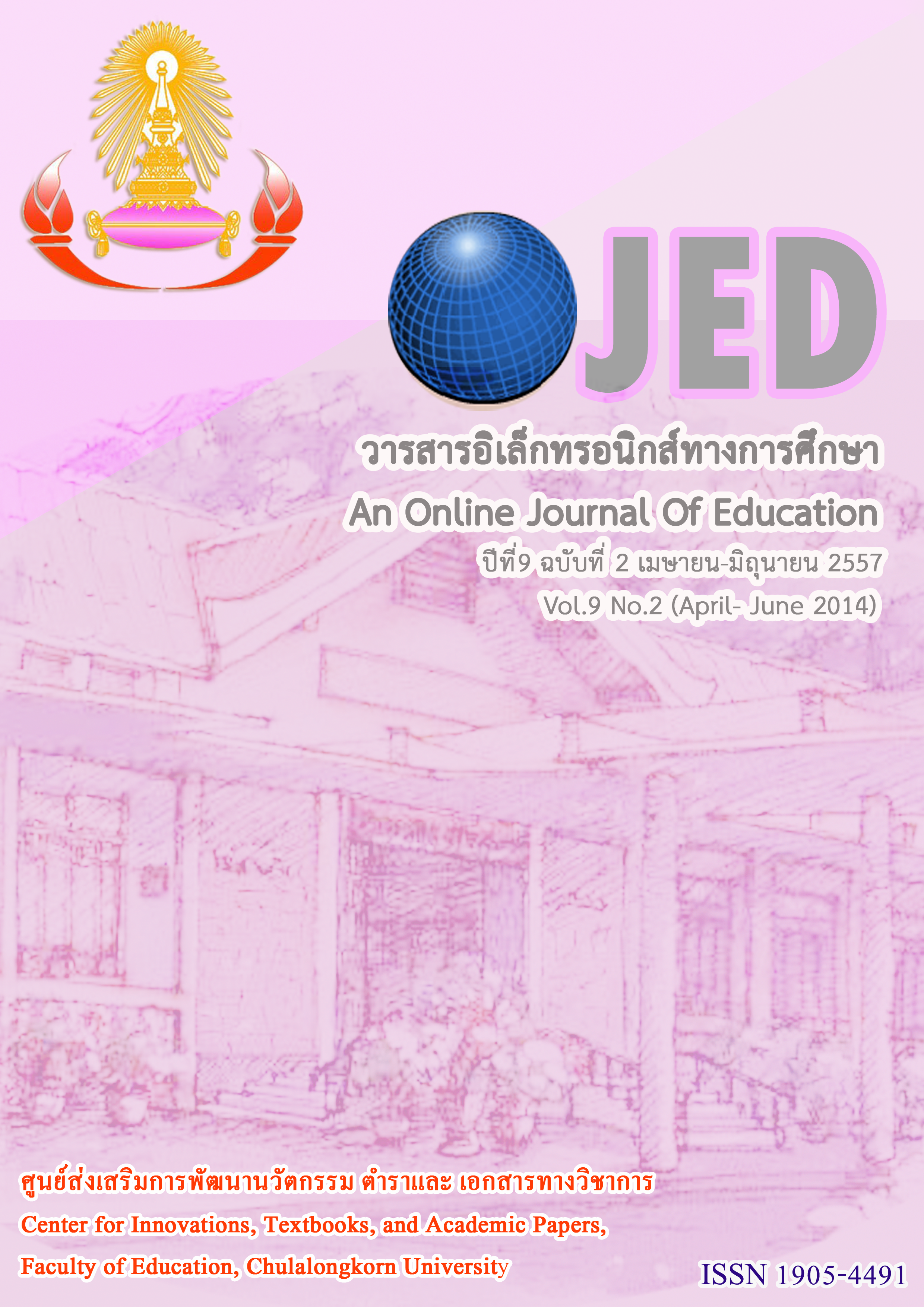การนำเสนอแนวทางในการพัฒนาผู้นำทางการเมืองที่พึงประสงค์ตามความคิดเห็นของนิสิตนักศึกษา
Keywords:
การพัฒนา, ผู้นำทางการเมืองที่พึงประสงค์, ความคิดเห็น, นิสิตนักศึกษา, DEVELOPMENT, DESIRABLE POLITICAL LEADERS, OPINIONS, UNIVERSITY STUDENTSAbstract
บทคัดย่อ
การวิจัยครั้งนี้มีวัตถุประสงค์ 1) ศึกษาคุณลักษณะของผู้นาทางการเมืองที่พึงประสงค์ตามความคิดเห็นของนิสิตนักศึกษา 2) เสนอแนวทางในการพัฒนาผู้นาทางการเมืองที่พึงประสงค์ตามความคิดเห็นของนิสิตนักศึกษากลุ่มตัวอย่าง คือ นิสิตนักศึกษาระดับปริญญาตรี จานวน 802 คน และผู้นานิสิตนักศึกษา จานวน 8 คน เครื่องมือที่ใช้ในการเก็บรวบรวมข้อมูล ได้แก่ แบบสอบถาม และแบบสนทนากลุ่ม วิเคราะห์ข้อมูลที่ได้จากแบบสอบถามโดยการหาความถี่, ร้อยละ, ค่าเฉลี่ยเลขคณิต (), ส่วนเบี่ยงเบนมาตรฐาน (S.D.), T-test, One-way ANOVA และการวิเคราะห์ข้อมูลที่ได้จากการสนทนากลุ่มโดยการวิเคราะห์เนื้อหา
ผลการวิจัยสรุปได้ดังนี้ 1) นิสิตนักศึกษาให้ความสาคัญกับคุณลักษณะด้านเจตคติต่อการเมืองและสังคมมากที่สุด 2) ตัวแปรด้านเพศ สถาบันการศึกษา อาชีพบิดา ระดับการศึกษามารดา อาชีพมารดาและความรู้เกี่ยวกับเหตุการณ์ทางการเมืองของนิสิตนักศึกษา ส่งผลต่อคุณลักษณะของผู้นาทางการเมืองที่พึงประสงค์แตกต่างกันอย่างมีนัยสำคัญทางสถิติที่ระดับ 0.05 3) แนวทางในการพัฒนาผู้นาทางการเมืองที่พึงประสงค์ควรผสมผสานการศึกษาทั้ง 3 ระบบ คือ การศึกษาในระบบ การศึกษานอกระบบ และการศึกษาตามอัธยาศัย
คำสำคัญ: การพัฒนา/ ผู้นำทางการเมืองที่พึงประสงค์/ ความคิดเห็น/ นิสิตนักศึกษา
Abstract
The purposes of this research were 1) to study the desirable characteristics of political leaders according to the opinions of university students, and 2) to propose guidelines for the development of desirable political leaders according to the opinions of university students. The subjects consisted of 802 undergraduate students and 8 undergraduate student leaders. The experimental instrument consisted of surveys and focus group reports. The data from the survey were analyzed by arithmetic mean (), standard deviation (S.D.), t-test and One-way ANOVA. The data from the interview were analyzed by content.
The findings of this research were as follows: 1) the undergraduate students gave precedence to the characteristics of attitude in politics and society. 2) Gender, educational institution, father’s career, mother’s educational background, mother’s career and the knowledge of political events of undergraduate students influenced the desirable characteristics of political leaders at a .05 level of significance. 3) The guideline for the development of desirable political leaders was to integrate formal education, non-formal education and informal education together.
KEYWORDS: DEVELOPMENT/ DESIRABLE POLITICAL LEADERS/ OPINIONS/ UNIVERSITY STUDENTS




